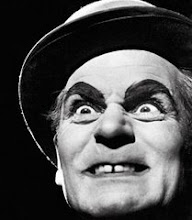
It is only fitting to say a few words as a tribute to the great Maurice Jarre, who departed this globe at the refreshingly antique age of 84 earlier this week. (I still don't think of people born in the mid 1920s as all that old - witness Paul Newman...)
Along with Jerry Goldsmith, Elmer Bernstein, Leonard Rosenman and John Barry, Maurice Jarre helped forge what film music connoisseurs call the Silver Age. That is, not as foundational as a Golden Age, but just as good in different ways.
At any rate, Jarre proved that, in spite being a young Frenchman with an almost Poulenc-like sound, he could score any picture that came his way. His first international splash was of course 'Lawrence of Arabia', with its very British premise and its Ottoman/Bedouin settings. It was a stroke of genius on David Lean's part to hire the very facile Jarre - and keep him - for the remaining pictures in his career. I daresay, Bax, Walton, Malcolm Arnold or John Barry could have made something splendid with 'Lawrence', but here was Jarre, taking an alternate path: the film spoke to him and he replied with pure film music, a perfect meeting of the arts, gimmick free, and with great themes, to boot. The 'Desert' theme everyone knows, but I like the Main Title the best, with its earnest aspiration, dignity and promise.
Lean's under-appreciated 'Ryan's Daughter' is elevated to a higher plane by Jarre's unexpected score, and 'A Passage To India' could hardly be scored with more originality, as it is entirely lacking in stereotypical expectations. 'Doctor Zhivago' is a score where everything works effortlessly, even Lara's rinkydink-sounding semi-striptease for heavy-lidded Rod Steiger.
The wonderful thing about Jarre though, is that he had an immensely rich career past Lean. What he did with 'Mad Max: Beyond Thunderdome' was an absolute triumph of epic scoring, and 'The Train', 'Is Paris Burning' and 'Isadora' are all sterling works.
His profound and sensitive score for Zeffireli's 'Jesus of Nazareth' ensured him a place beside the greats like Alfred Newman, Miklos Rozsa and Franz Waxman.
Like Goldsmith and Bernstein, permanently confident in his style, Jarre never lost his touch. Though the greatness of the films he scored came less often, Jarre's music stands out as artistic integrity that is exemplary.
One example of later Jarre that is plainly a masterpiece is his score for 'Tai Pan'. In this film, that should have been better than it was, Jarre creates harmonic excitement that is free from token exoticism, yet it is evocative of Opium War-era China in ways that only a wholly original composer can come up with. The lengthy End Title music is Jarre at his best. As the camera slowly zooms out into a tremendous panorama of Hong Kong as seen from the Peak, Jarre lets all his powers loose to form a triumphant paean to an idealism that the film itself didn't touch, a pure flight of glory that doesn't necessarily have anything to do with 'Tai Pan' at all, and is more of a tone poem than specific program music. Like many of the finest film composers, Jarre regularly transcended the film he was hired to score
(While I will always prefer the Main Title to be at the beginning of a film, the End Title credit crawl has been a gold mine for film composers to show what they've got, which is reason enough to be the last one to leave the auditorium if the score is a good one...)
There is always something high-flying and free about a Jarre score, as if his music is up in the atmosphere, but, ever mindful of the job it has to do - to support the film that is its reason for being - a grounding in drama and tone is always present as well.
Thus do I salute Maurice Jarre (1924-2009) as one of the all time great film musicians.


A most commendable eulogy put forth, PM. Bemoan that fact that I find little to be inspired by in the way of original incidental film scoring as of late - between indie slacker moanin' & dronin' and John Williams-y homogenized pomposity what else we got?
ReplyDelete(well, besides R. Sakamoto)
(and Badalamenti... and we do still have Ennio M - how negligent of me for not mentioning above)
ReplyDeleteRight on, b!ps!
ReplyDeleteIndeed, the Williamsizationing for the past 30 years, and sound-filler like the Hans Zimmer Music Factory are bloated realities, but as you say, the Angelo B/Ennio M/Mikey Nyman types are doing some jim-dandy stuff down there in the cracks as we speak. 'Tis a great comfort to know...
And as a by-the-way, followed through on prior Melmothian recommendations - relished Carmen J (Stan' Up an' Fight!)... and Herzog's 'Nosferatu' to which the exquisite music of Florian Fricke and his ensemble Popol Vuh (been an admirer since the mid 80's - their 'Hosianna Mantra' was as an epiphany to me) imbued the program with such ethereal evocation; an unexpected realm than the usual goth-y type score often fastened onto such a theme.
ReplyDelete